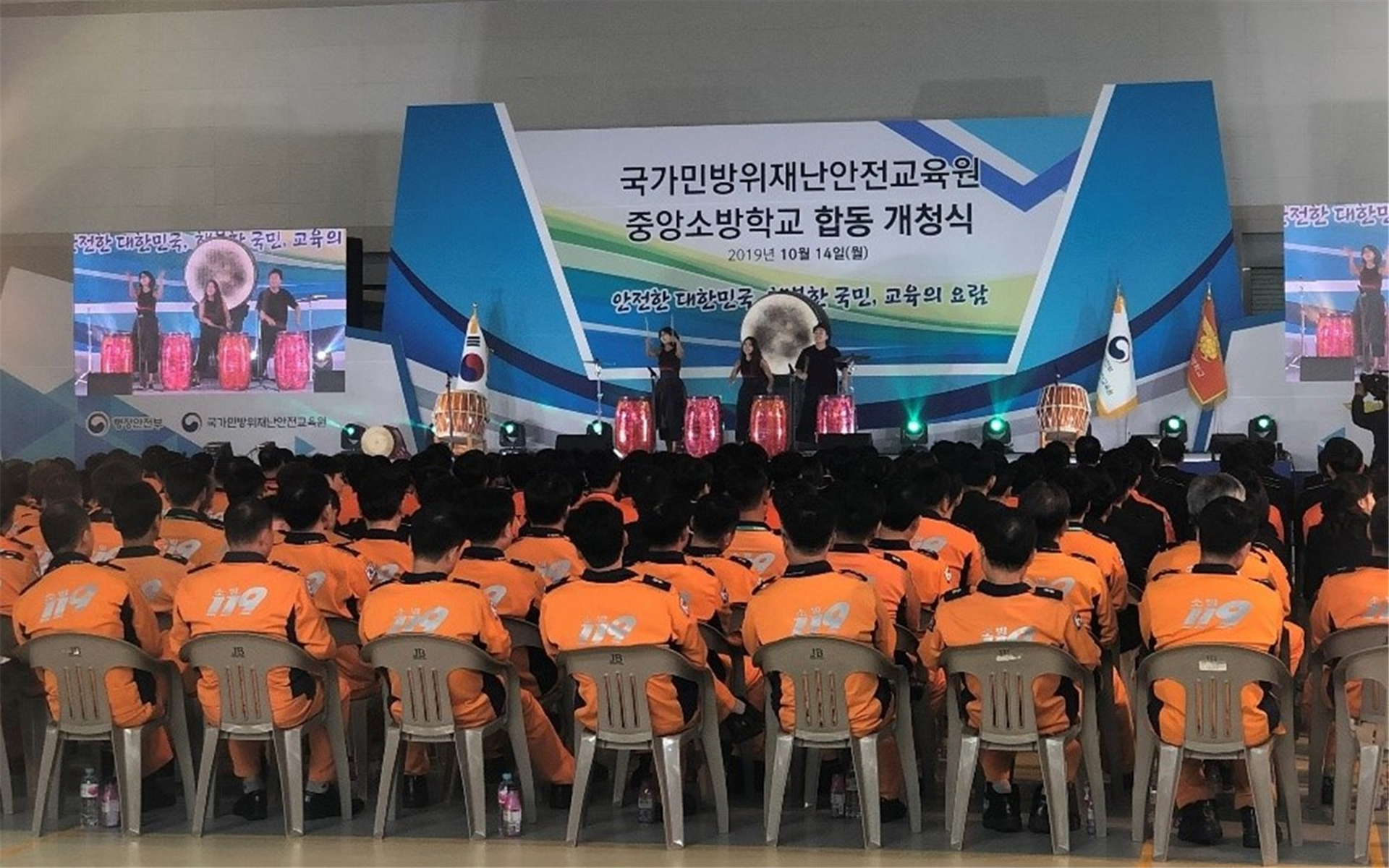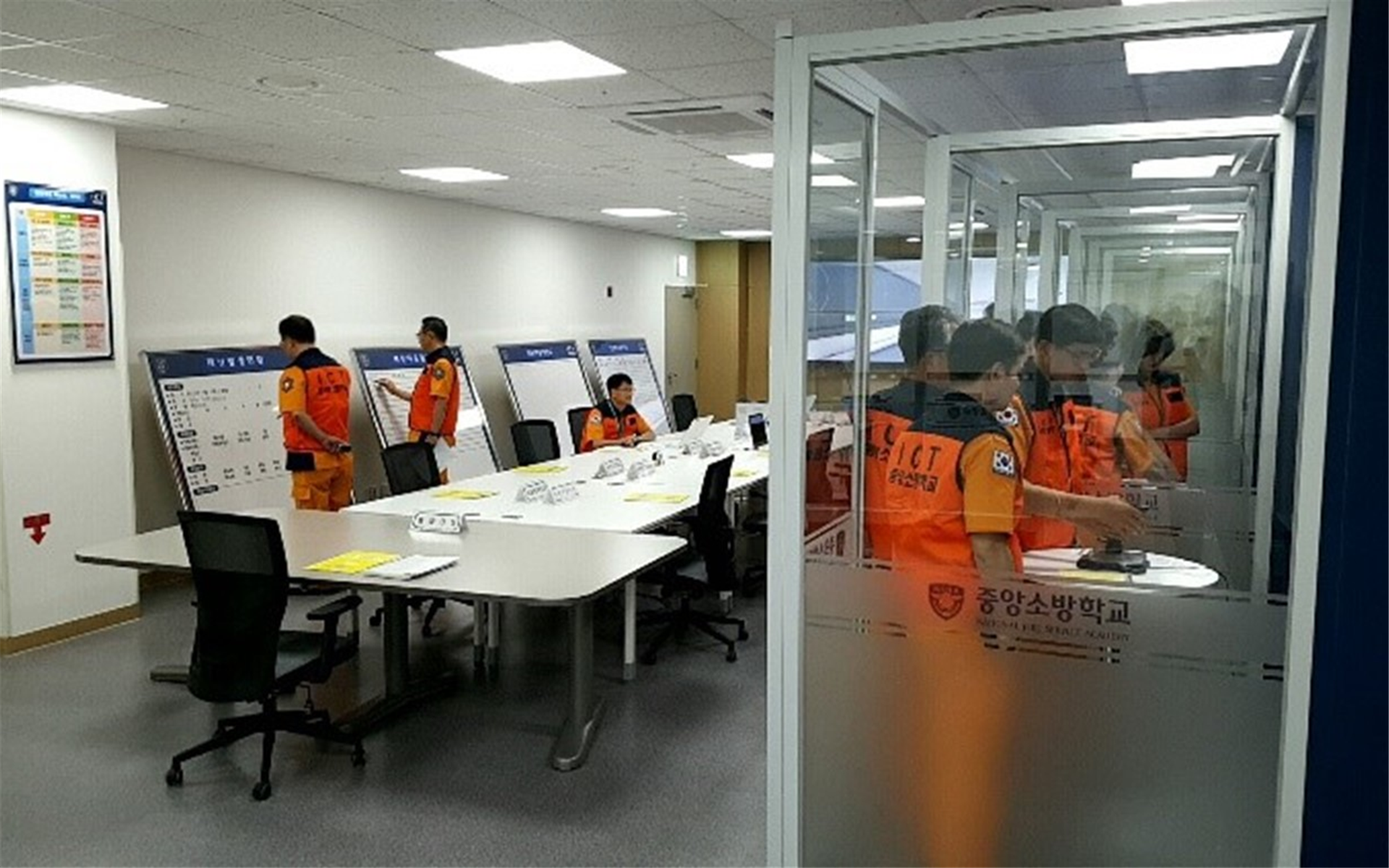The grand opening of South Korean National Fire Service Academy (NFSA) and XVR Simulation Centre occurred on 14th October 2019.
The National Fire Agency Service invited VIPs and officials, which included the Minister of Public Administration and Security, Fire Commissioner of Korea Fire Agency, Mayor of the Gong Ju city, HEAD of NFSA and other fire commissioners of the local fire HQ for visitation and introduction to the building’s facilities.
Among all the state-of-the-art training facilities is the new XVR Simulation centre, where the project was carried out by Intuita, XVR’s local partner in Seoul. The XVR Incident Command Simulation Centre will be used to educate and train incident commanders of all levels. With the flexibility of XVR platform, the trainers will be able to create virtually any small scale to big scale disaster scenarios to train and better prepare their students.
Armed with the same XVR training system as Seoul Fire Brigade and Gyeonggi-do Fire Brigade, all three training centres can collaborate, share training scenarios and environments, greatly improving their training effectiveness.
On 23 June 2019 the National Fire Agency announced that the NFSA would move from Cheonan to Gongju Sagok-myeon National Safety Education Research Complex. Built in 7 years since 2012, the modern complex houses state of the art training facilities which includes classrooms, training centres, dormitories and staff quarters.
These facilities would be available for educating and training of students on the different types of disasters, including fires, communal buildings, fire suppression of complex buildings, urban exploration of structures, and even chemical accidents. The new nest for National Fire Service Academy was built on a land area of 420,000m², and currently, 39 buildings have been erected with a total area of 68,075m².
Choi Tae-young, the head of the National Fire Service Academy commented, “The completion of the 2nd phase relocation project for the total area of 43,278 square meters and 12 buildings by 2022 and the relocation of the National Institute of Fire Research will be reborn as the world's best firefighting education research complex.”
New Era for South Korea’s National Fire Service Academy
Get in touch
Interested in finding out more about Coventry Enterprises Singapore? Follow the link to our enquiry form.


